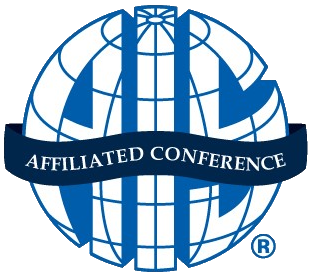Beyond amount of use: Concepts and constructs for heterogeneous and creative uses of IS
May 26, 09.00 – 17.00 (Fürstenberghaus, Room F104)
During the recent years, increasing evidence has shown that IS are used in various and unexpected ways, that their practices undergo changes over time, and that IS use consists of multiple qualitatively different uses that are context-dependent.
These findings have significant implications for how IS use should be understood in the scholarly IS discipline. This evidence has not yet had significant impact on the mainstream IS research, especially on its quantitatively oriented tradition where IS use continues to be conceptualized in terms of frequency or amount of use.
The emerging understanding of heterogeneous IS use presents several interesting challenges for IS researchers:
- What are the limitations and boundary conditions of the existing mainstream IS use models in the light of heterogeneous use?
- How should heterogeneous use be integrated into the existing models and theories?
- What are the suitable concepts and theories to study unexpected and hard-to-predict patterns of IS use? For example, how can theoretical lenses such as affordances or structuration theory help explain unexpectedness, heterogeneity, or creative IS use?
- Should the use construct be conceptualized at less general level of abstraction to better manifest the technology in question?
- To pay more attention to how usage is associated with the technology in question, what are the elements of IS that provide better richness and practical importance?
The goal of this workshop is to bring together IS researchers to discuss these challenges and develop fruitful directions for future research.
This full-day workshop provides a forum for researchers to discuss the theme. In the morning we will focus on participants’ presentations in 2 to 3 sessions where similar papers have been grouped together.
The afternoon is reserved for IS research agenda development in small groups. Based on the profiles and submissions by the participants, we will be working in 2–3 groups, with a task of analysing the impact of heterogeneous and creative IS use on our field’s theories, and developing necessary future research activities.
We are also considering inviting a keynote speaker for the workshop, from a neighbouring research community that is relevant but not so well-known for IS people (e.g., human–computer interaction or computer–supported cooperative work).
Duration
Full day
Description of submission handling
We hope to have 6 to 8 papers in the workshop, but are able to include up to 10 papers in the program if the workshop proves popular. The workshop has the following program committee:
- Prof. Andrew Burton-Jones (UQ Business School)
- Prof. Kalle Lyytinen (Case Western Reserve University)
- Dr. Mary Tate (Victoria University of Wellington)
- Prof. Se-Joon Hong (Korea University)
- Prof. Frank Chan (ESSEC Business School)
- Prof. Kar Yan Tam (Hong Kong University of Science and Technology)
The main purpose of the committee is to provide insightful reviews. We wish to be inclusive in the review policy, and will hope to accept as many papers as is reasonable, with the condition that the submissions fall within the theme of the workshop and have been thoughtfully written.
Import deadlines
15 December 2015: Call for workshop papers distributed to relevant email lists
15 March 2015: Submission deadline for workshop papers (~15 days after the ECIS paper notifications)
5 April 2015: Notifications of acceptance (7 days before early registration deadline)
26 May 2015: The workshop
URL to the workshop’s own website
https://sites.google.com/site/ecis2015creativeuse/
Short Bio of the organizers
Antti Salovaara (post doc, Aalto University, School of Business) studies creative IS use, knowledge work, and human–computer interaction and has publications about the topic e.g. in ICIS213, Journal of the Association for Information Science and Technology, Human–Computer Interaction, and CHI2007.
http://people.aalto.fi/antti_salovaara
Jani Merikivi (post doc, Aalto University, School of Business) studies consumer technologies and services. He has publications in International Journal of Information Management, Information & Management, New Media & Society and Computers in Human Behavior.
http://www.researchgate.net/profile/Jani_Merikivi
Gregory Baker (post doc, HITLab NZ) studies creativity, innovation, cognition and learning.
http://hitlabnz.org/index.php?option=com_jresearch&view=member&task=show&id=342&Itemid=253
Stefan Seidel (assistant professor, Institute of Information Systems, University of Liechtenstein) studies IS in organizational practice, transformation, creativity and innovation. Stefan's work has appeared e.g. in MIS Quarterly, Journal of the Association for Information Systems, and the Journal of Information Technology.
http://www.uni.li/stefan.seidel
Anssi Öörni (professor, Department of Information Processing Science, University of Oulu) studies IS use with psychological and social-psychological approach. His research has been published in Information & Management, European Journal of Information Systems, and Journal of Experimental Psychology: Applied. http://www.oulu.fi/tol/personnel/öörni-anssi


